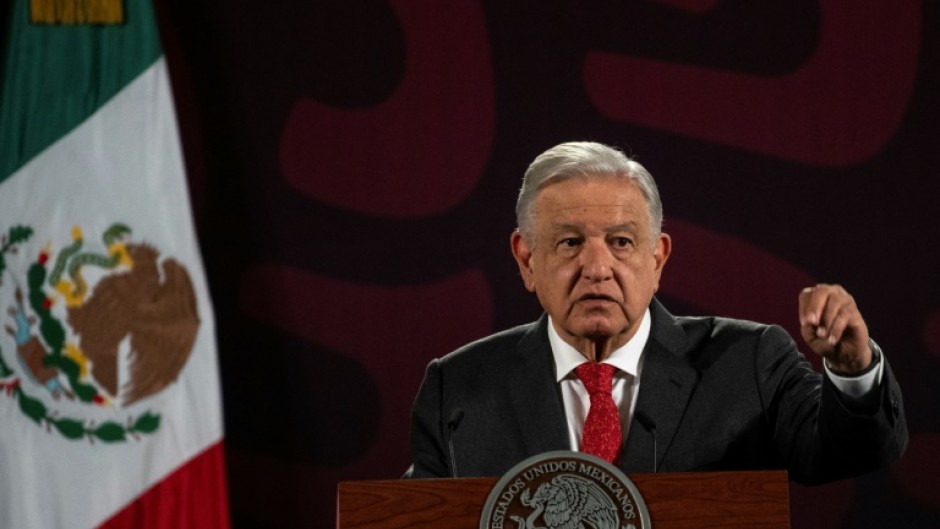Mexico's outgoing President Andres Manuel Lopez Obrador on Friday warned the Supreme Court against blocking his controversial judicial reforms, saying it would be a "flagrant violation" of the constitution.
The proposals, which would see Supreme Court and other judges selected by popular vote, have sparked diplomatic tensions with the United States, prompted protests by opponents, and upset financial markets.
Striking judicial workers have asked the Supreme Court to intervene to halt the legislative process -- a request that Lopez Obrador said had "no legal basis."
"It would be an aberration and of course a flagrant violation of the constitution to stop the process of analysis, discussion and, if necessary, approval of the constitutional reform," he told a news conference.
"It would be like opting for the law of the jungle, clearly showing that they don't care about democracy or justice," Lopez Obrador said.
The United States, Mexico's main trading partner, has warned that the reforms would "threaten" a relationship that relies on investor confidence in the Mexican legal framework.
Lopez Obrador, who will be replaced by his ally Claudia Sheinbaum on October 1, argues that the courts serve the interests of the political and economic elite.
"The judiciary is rotten, invaded by corruption," he said. "Are they going to continue defending foreign companies that come to plunder, to steal, to affect the economy of Mexicans?"
The leftist leader has often criticized the Supreme Court, which impeded some of his proposed reforms in areas such as energy and security.
Investor concerns about the reforms have contributed to a sharp fall in the value of Mexico's currency, the peso, which this week hit a two-year low at beyond 20 per dollar.
On Wednesday, the proposals were approved by the lower house of Congress, where Lopez Obrador's Morena party and its allies have a supermajority following a landslide election victory in June.
The plan is due to be debated next week in the upper chamber, the Senate, where the ruling coalition is just one seat short of a two-thirds majority.

